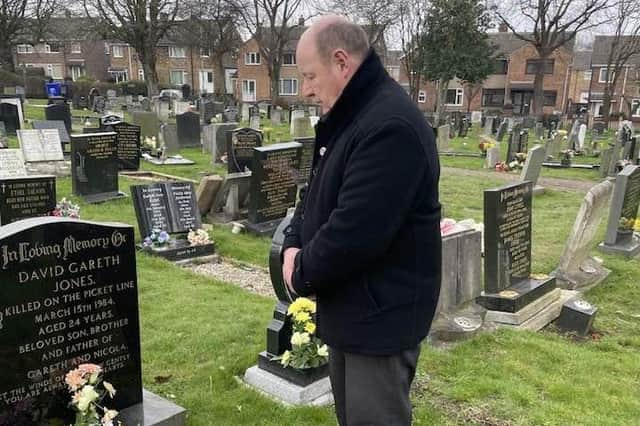Opinion: '40 years on from the 1984/85 Miners' Strike' as Nottinghamshire NUM set to host anniversary event


I was 27 when I came out on strike with a young family of two girls, one five years and one four months.
It was hard that year but we got by with the help of our fellow comrades and our wives, the women formed a group called the Welbeck Women’s Action Group.
Advertisement
Advertisement
They began fundraising, and speaking in meetings across the country gaining massive support that enabled them to prepare food parcels for the families on strike.
The women originally had our village hall to prepare a meal and put together the food parcels for the families on strike but the committee of the miners’ welfare to which the village hall was run told the women they could not use it anymore as Welbeck was working.
This did not go down well and the women entered the village hall, locked the doors and had a sit-in, demanding the right to feed or families.
After a few days the council got involved and allowed us the use of the local school kitchens.
Advertisement
Advertisement
On writing this it is International Women’s Day – and these women were true heroes of the working class.
Unlike the strikes of 1972 and 1974, this strike was not about wages, it was about preventing pit closures and protecting the future for our children, allowing them if they so wished to work in the pits. It was about protecting our communities and local amenities.
The strike was brought about not just because of the Coal Board’s decision to close the pits but it was conceived and planned by the Tory Government in 1977 following the fall of the Heath Government in 1974.
In 1977 Nicholas Ridley, a Tory MP, produced a report which became known as the Ridley Plan, the plan proposed how the Government could fight and defeat a major strike in a nationalised industry.
Advertisement
Advertisement
It proposed building up coal stocks at power stations prior to initiating a strike, it outlined plans to import coal from non-union foreign ports, it outlined plans for non-union lorry drivers to be recruited by haulage companies, cutting off the money supply to strikers, and train and equip a large mobile police squad ready to employ riot tactics against the pickets.
The latter worked well for them during the battle at Orgreave, which saw a full cavalry charge and hundreds of police in full riot gear and short shields and batons battering miners and locking up and charging 95 men with ‘riot’ which if convicted carried a life sentence.
Once in court all the charges were thrown out due to the lies in the police statements.
We demand a full inquiry into the police and governments actions during the battle of Orgreave and for the year long strike.
Advertisement
Advertisement
The Government and their army of riot police did their upmost to get the miners back to work, employing heavily motivated tactics across the coalfields none more so than in Nottinghamshire.
They enticed the miners that crossed the picket lines with all sorts of promises including; ‘we will look after you in Nottinghamshire. Your pits will be safe.’
Countless pits were closed in Nottinghamshire with the last one being Thoresby.
I sincerely believe that if the miners in Nottinghamshire had not crossed the picket lines and remained loyal to the NUM, the strike would have not lasted long and some of these pits would still be in production today, and our pensions would not have been robbed of us to the tune of over £4.2 billion by successive governments.
Advertisement
Advertisement
Our pensions would have given our miners a better life in their retirement.
I and the others who took part in the strike to protect our industry and communities can hold our heads high, unlike some.
All the pits might be closed but the NUM is still functioning, and assisting our aging members.
To that end, we are in the process of organising a celebration evening to commemorate our battle 40 years ago for those who remained loyal to the Union. Contact me for details at [email protected]